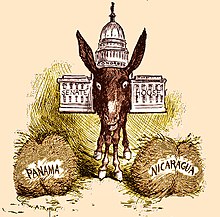Maybe you’re thinking right now, “And what’s the buridan ass?For centuries, humans have used animal caricaturing to transform our fellow planetariums into story protagonists. Children’s stories are very fond of this practice, in which they embody cicadas, ants, pigs and even donkeys.
Well, as you know, Buridan’s donkey is the protagonist of a medieval parody that sought, reducing it to absurdity, to attack reason as a maximum and unique source of knowledge. This story was born to criticize the rational demonstration of God’s existence. by Jean Buridan, although it can also be used to attack the rest of the attempts. In this article we will use the story in a different direction, but first we will know the history of this famous donkey.
- There was a donkey that had something special.
- The funny thing about its history was the situation it was in.
- There are many versions of this situation: some say it was at the same distance from two piles of hay and others say it was at the same distance from a pile of hay and a bucket of water.
- What the paradox says is that the donkey.
- Very rational.
- Unable to choose one or the other.
- Ended up starving.
It’s absurd, isn’t it? Well, as absurd as it may seem, I’m sure you know someone who looks like Buridan’s ass, and you may have been yourself on some occasions, usually the choices we have to make a decision are not equidistant, but they can be similar in terms of attractiveness.
So, what’s going on? Turns out we started going further, evaluating the pros and cons and?You know what happens very often too? Some of the two options disappear and, at worst, both, leaving us with nothing. They said indecision is the best thief of the occasion.
As we said at the beginning, this story was born as a critique of the predominant use of reason as a means of locomotion to walk the world, because they are overly rational people who are trapped in paradoxes similar to our ass, and the worst thing is that they often end up in the same way.
Other times not, but not because they can’t make a decision, but because it’s time or others who decide for them, eliminating one of the options. As a group, their behavior is also characteristic: these people will never be the ones who decide between equally attractive plans, but they will be the ones who, once the others have chosen one, will push in the opposite direction. So people who are like Buridan’s ass are radical by nature and good?in the situations we describe.
Anyone around these types of people ends up realizing what it’s like and tries to present as few decisions and options as possible, fearing a rational blockade or collapse; on the other hand, it is also often the people that others turn to. to tell them about their problems, because they know that they have analytical training so developed that they will make a general and in-depth assessment of the situation in a short period of time.
This is also known by companies, in particular those looking for a certain profile to make decisions and another profile to get an idea of what is going on in a given situation, finally, the same goes for politicians, there are those who are good at diagnosing reality. , but they quickly completely block when they make decisions and transform them.
An example of extreme rationality can be found in one of the most charismatic characters on television, Sheldon Cooper, in fact, is himself who compares himself to Buridan’s donkey in one of those Big Bang Theory scenes where everything is relevant. to tell you exactly how it happened because we don’t like spoilers, but you can see the scene in episode seven of the tenth season.
Leaving the small screens, we can talk about the testers of many clothing stores, where we will find those who will enter with two rooms in the dressing room, even if they only have a budget, and have the ability to despair the escort them, however patient.
Critics of this paradox say that human decisions rarely resemble those of our Buridan ass, they say so because human decisions are not based on an objective difference in value, but on a perception of the difference in value. However, we all continue to find people who, before two options and over those with a clear preference, cannot decide.

